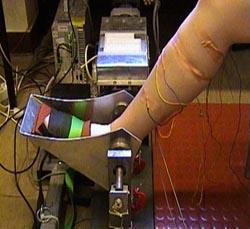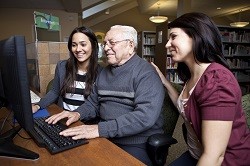Ageing and motor control
Frailty is the enemy of self-sufficiency of the elderly. Falling, loss of balance, and reduction in muscular stamina all contribute to loss of activity and ironically, can promote fear of taking recommended exercise. The BETTER-AGEING project aimed to investigate the sources of musculoskeletal deterioration and therefore enable recommendations for remedial action to stem the progress of the decline. Furthermore, it promoted the formation of joint initiatives between academic and social partners to help to realise these aims. Project partners in the Université Libre in Brussels specifically researched the decline of motor control in the elderly. Motor control depends on the proper functioning of the skeleton, joints and the controlling nervous system. The motor system is involved in the stimulation of muscle activity and is reliant on stimulation from the sensory system. The scientists found that there is a considerable amount of remodelling in the motor nervous system when an individual ages. For example, there is a loss of motor neurons with age but there appears to be an increase in force for each motor unit. The scientists concluded that the observed decrease in muscle force may in part be due to a slowing of spinal reflexes and supraspinal reflexes above the vertebral column. This would infer that the decline of the sensory system is more acute with age than that of the motor system and may be the culprit that causes frailty. Data of this nature can be utilised to devise rehabilitation and exercise programmes tailored to improving the physical capacity and strength in the elderly. Information from the project has been disseminated to the inevitably large range of parties with a professional interest in successful ageing. This includes clinicians, physiotherapists, local practitioners, age related charities and voluntary organisations working with the elderly.







